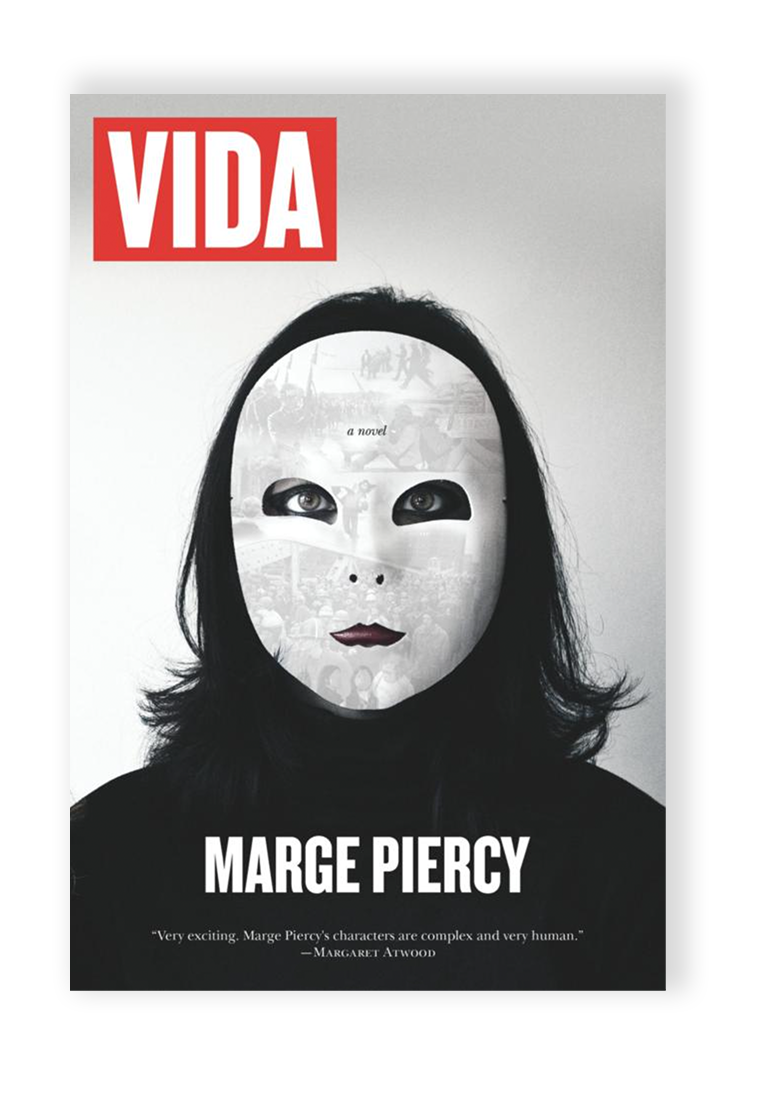Vida
VIDA is the most important novel yet written about the political ’60s and ’70s; it is at the same time a sensual and moving love story. Vida is full of the pleasures and pains, the experiments, disasters and victories of an extraordinary band of people. At the center of the novel stands Vida Asch. She has lived underground for almost a decade. Back in the ’60s she was a political star of the exuberant antiwar movement — a red-haired beauty photographed for the pages of Life magazine — charismatic, passionate and totally sure she would prevail.
Now, a decade later, Vida is on the run, her star-quality replaced by stubborn courage. She comes briefly to rest in a safe house on Cape Cod. To her surprise and annoyance, she finds another person in the house, a fugitive, Joel, ten years younger than she, a kid who dropped into the underground out of the army. As they spend the next days together, Vida finds herself warming toward a man for the first time in years, knowing all too well the dangers.
Praise for the new edition from Bitch Magazine, June 2012:
When it was first released in 1979, the L.A. Times called Marge Piercy’s Vida the “Golden Notebook of the ’80s,” both a record of and reflection on the state of feminism at a historical turning point. In the 1960s American antiwar movement (the setting of half of Vida), feminist issues were considered second-tier, even by many of the women within the movement. Piercy embodies this contradiction in the stunning flesh and spirit of her title character, Vida Asch.
Unlike Piercy, who was deeply engaged with the student political movement of the ’60s but went on to dedicate herself to women’s issues in the following decades, Asch breaks from the mainstream movement to found a militant, anti-imperialist collective called Little Red Wagon (based on the true-life Weather Underground) that carries out dozens of corporate bombings and earns its members spots on the FBI’s Most Wanted list. The narrative is less focused on these militant actions than on their aftermath in the 1970s, when the bomb smoke has settled and the collective’s remaining members are political fugitives, dependent on a web of sympathizers and comrades—dubbed “the Network”—to survive.
Through Asch, we see what it was to be a feminist in practice, as she fights to remain a leader in an environment of machismo and objectification. She embodies political and sexual vigor. She channels both masculine and feminine power when they suit her cause and uses her sexuality as a tool. Yet she still has to reconcile her desire to be loved by men (and women) and welcome intimacy in a landscape of political and personal upheaval.
As a portrait of political struggle, Vida translates easily to modern times. The current Occupy movement draws on an amalgam of issues that the antiwar movement began to crystallize way back in the ’70s. And while feminism has moved up the ranks since Asch’s time, we still battle many of the same sidelinings in progressive movements.
Recommended If: You want to learn more about the ’60s political underground, but your eyes glaze over at the mere mention of Marx.
And, from the mainstream press:
“Real people inhabit its pages and real suspense carries the story along…VIDA of course means life and she personifies it…I found the book fascinating.”
— The Chicago Tribune
“A fully controlled, tightly structured dramatic narrative of such artful intensity that it leads the reader on at almost every page.”
— The New York Times Book Review
“Marge Piercy’s strong, complex yet lucid political novel is a flame opus….a fire show: sometimes the explosion of a grenade, sometimes the glow of an oil lamp in a New England farm house, sometimes sparks from the friction of IRT subway wheels or the friction of passion between men and women or women and women, sometimes a veritable son et lumiere of the 60’s and 70’s…” —The Washington Post
“An epic story fueled with intense commitment and sensuousness…Piercy shows characters surviving…with integrity and tenderness…in a political milieu. VIDA may be to women in the 80’s what THE GOLDEN NOTEBOOK was to women in the 60’s.”
— The Los Angeles Times
“Marge Piercy tells us exactly how it was in the lofts of the Left as the 1960s turned into the ’70s. This is the way everybody sounded This is the way everybody behaved. Vida bears witness;’
—The New York Times
“Very exciting. Marge Piercy’s characters are complex and very human
.”
— Margaret Atwood

